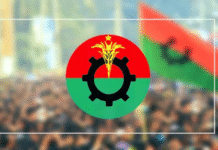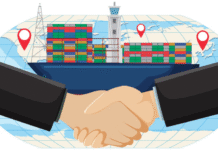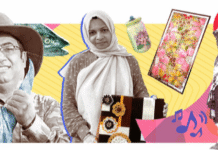
In 1971, I was working on an Oxfam village development project in Bihar, but with the influx of refugees from Bangladesh in April 1971, I was asked by Oxfam to go to Kolkata to assist. In May 1971, we estimated that “10 million refugees might come to India.” People said that we were crazy to say that!
In May 1971, I took over charge of a massive relief effort assisting 600,000 refugees in many refugee camps in Tripura, Assam, Meghalaya, Cooch Behar, Jalpaiguri, Siliguri and other border areas of West Bengal. It was an enormous relief programme involving hundreds of young doctors and volunteers, both Indian and Bangladeshi. I also assisted in the collection of statements about the “Crisis in Bengal” published as ‘The Testimony of Sixty’, a powerful Oxfam publication which carried statements from famous people such as Mother Teresa and Senator Edward Kennedy.
After the Liberation War had ended, I was one of the first Oxfam personnel to come, in January 1972, to Bangladesh to assess the damage caused by the Liberation War. My meeting was organized by Tajuddin Ahmed, who I had met in Calcutta in 1971 when he was Prime Minister of the Mujibnagar Government. My meeting with Sheikh Mujib is one I will never forget. I told him that I wanted his advice about what a small organization like Oxfam might be able to do to assist in the rehabilitation and development of Bangladesh. Sheikh Mujib took his pipe out of his mouth and pointed the stem of the pipe at me. “How did you come here, young man?” he asked in a booming voice. I told him that I had driven over land from Calcutta. “In that case”, he told me, “You have seen more of my country than I have, as I was a prisoner for over 9 months, so please tell me what my country needs. What have you seen?”
I told Sheikh Mujib that I had seen many villages that had been burnt down, many bridges and culverts blown up and many ferries and launches, large and small, sunk in the rivers. I told Sheikh Mujib that, on behalf of Oxfam, I had already ordered, in India, £ 250,000 worth of C.I. sheets for a big house rebuilding programme and these would arrive by early March. I added that I thought that bridge building and replacement and repairs of ferries were more suited to bilateral and multilateral aid. “No”, Sheikh Mujib said, “Ferries are and will be the lifelines for my people. Please discuss with officials of the Bangladesh Inland Waterways Authority and see what OXFAM can do.”
Before I left him, Sheikh Mujib asked me about my experiences working with the people of Bangladesh in the refugee camps. As I spoke, emotion got the better of me and tears welled up in my eyes. Sheikh Mujib put his arm around me to comfort me and said, “Go young man, be strong, and thank you for coming to see me and for helping Bangladesh.”
As a result of the meeting with Sheikh Mujib, Oxfam was able to procure 3 truck-carrying ferries and to assist the repair of many others. I remember that the Bangladesh Inland Waterways Authority wanted, understandably, to name the ferries after Liberation War martyrs. But after the experience of getting to know the flora and fauna of Bangladesh and how they are part of the country’s poetry and music, we requested that the vessels be named after flowers. And so, Kamini, Kosturi and Korobi, were so named and they continue to ply across the Padma River at Mawa to this day, over 40 years later.
In 1978, based in India, I set up a programme in South Asia for Oxfam buying utility handicrafts from producer groups and marketing through “Fair Trade” network and in this connection visited Bangladesh a number of times between 1978 and 1983
In the years 1985-92 I was based in Bangladesh, covering South Asia, for a Canadian NGO, CUSO. I was involved in the relief and rehabilitation work of the flood disasters of 1987 and 1988 and the cyclone of 1991, and the coordination and support of organizations working with people with disabilities. We played a role in setting up the National Forum of Organizations Working with the Disabled (NFOWD) and preparing the first drafts of Bangladesh’s Disability Policy and related Legislation. My commitment to disability issues is related to my own elder brother who had ‘Down’s Syndrome’ and elder son, now 41, who has a severe learning disability.
I was present in Bangladesh during the political turmoil of 1990, when democracy returned to Bangladesh. This was a more dangerous time, in my opinion, than the present day as we had to survive between very strong hartals and also curfews.
After working in Indonesia on environmental issues, I returned to Bangladesh in 1998 to work with International Federation of Red Cross and Red Crescent Societies (IFRCS). I was in-charge of Red Cross’ flood relief work of 1998 floods and also in India for the 1999 Orissa cyclone. I was also involved in Red Cross/Red Crescent work in the Chittagong Hill Tracts after the Peace Treaty of 1997.
From 2000 to 2016, I have worked for a number of Government poverty alleviation projects supported by the European Union and DFID. Adarsha Gram, which settled approximately 70,000 landless families in 1,500 villages built on Government ‘khas’ land, was one of the projects and DFID funded ‘Chars Livelihoods Programme’ (CLP) was the other one. CLP worked in the remote island chars of the Jamuna and Brahmaputra River Basins, providing sustainable livelihoods to about 130,000 homeless/landless families. I am also honoured to be on the National Steering Committee of another poverty alleviation project, Economic Empowerment of the Poorest (EEP) also known as Shiree.
I am particularly angry that my photo has been used in this way especially in the month of August. Most people have not yet recovered from the brutal assassination of Bangabandhu and most of his family. Having had the privilege of meeting him, I know what a personality he was. I also remember August for other reasons. August 1971, many of the refugee camps in India were flooded and we in Oxfam were also involved in the arrangements of Edward Kennedy’s memorable visit to the refugee camps near Kolkata and in Tripura.
I have no intention of leaving this country where I have a wonderful extended family of close friends and if possible I would consider it a great honour to be permitted to live in Bangladesh for the rest of my life.
Source: Bd news24









